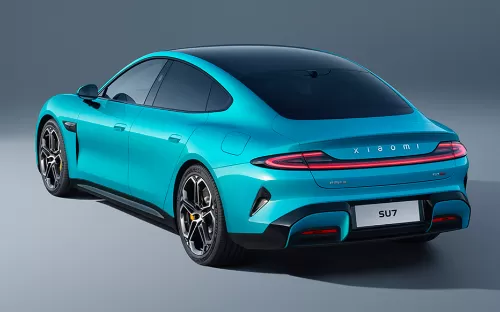The Rise of Electric SUVs: Redefining the Automotive Landscape
The automotive industry is undergoing a significant transformation, with electric SUVs emerging as a prominent trend reshaping the market. Combining the versatility of SUVs with the eco-friendliness of electric vehicles (EVs), electric SUVs offer consumers a compelling alternative to traditional gasoline-powered vehicles.
Click to Get Big Benefits

One of the primary advantages of electric SUVs is their contribution to environmental sustainability. With increasing concerns about climate change and air pollution, electric vehicles have gained traction as a cleaner transportation option. By replacing internal combustion engines with electric motors, electric SUVs produce zero tailpipe emissions, reducing greenhouse gas emissions and improving air quality in urban areas.
Furthermore, electric SUVs offer enhanced performance and driving dynamics compared to their gasoline counterparts. Electric motors deliver instant torque, providing smooth and responsive acceleration that enhances the driving experience. Additionally, the lower center of gravity resulting from the placement of heavy battery packs contributes to better handling and stability, making electric SUVs more agile and enjoyable to drive.
Another compelling aspect of electric SUVs is their potential for energy efficiency and cost savings. While the initial purchase price of electric vehicles may be higher than gasoline-powered vehicles, they offer lower operating costs over the vehicle's lifetime. With fewer moving parts and lower maintenance requirements, electric SUVs require less frequent servicing, saving owners both time and money in the long run. Additionally, the availability of government incentives and tax credits for electric vehicle purchases can further offset the upfront costs and make electric SUVs more financially appealing.
However, electric SUVs still face certain challenges that need to be addressed for widespread adoption. One significant concern is range anxiety, or the fear of running out of battery charge before reaching a destination. Although the range of electric SUVs has improved significantly in recent years, achieving ranges comparable to traditional vehicles remains a priority for automakers. Investments in battery technology and charging infrastructure are crucial for alleviating range anxiety and increasing consumer confidence in electric vehicles.
Additionally, the availability of charging infrastructure remains a barrier to widespread adoption of electric SUVs. While charging stations are becoming more prevalent, especially in urban areas, further expansion and development of charging infrastructure are needed to support long-distance travel and accommodate the growing number of electric vehicles on the road.
In conclusion, electric SUVs represent a transformative force in the automotive industry, offering consumers a compelling combination of performance, sustainability, and cost savings. While challenges such as range anxiety and charging infrastructure remain, ongoing advancements in technology and infrastructure are driving the widespread adoption of electric SUVs and reshaping the future of transportation.

All News
- Dentistry
- Lawyer
Others
- Terms of use
- Privacy Policy
- About Us
